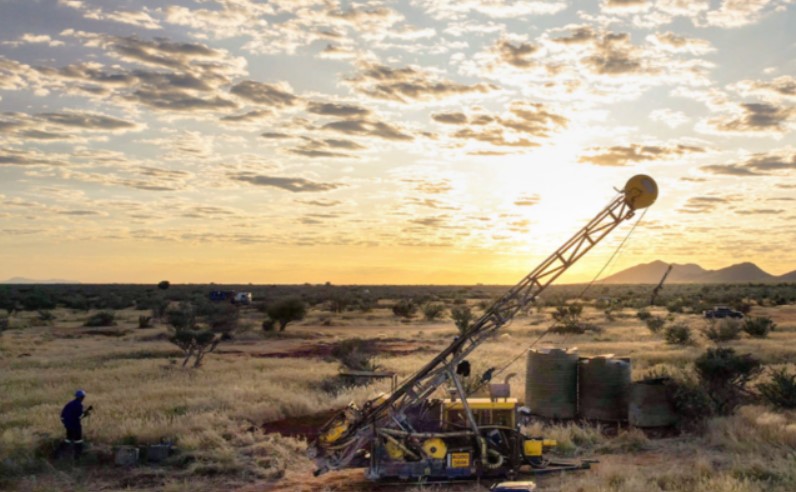Dundee to acquire Osino’s Twin Hills gold project in Namibia for $214 million

Dundee Precious Metals (TSX: DPM) is buying Osino Resources (TSXV: OSI) for C$287 million ($214m) in cash and shares to acquire its advanced-stage Twin Hills gold project in Namibia.
The half-stock, half-money deal gives Dundee all of Osino’s shares for C$0.775 each plus 0.0801 of a Dundee share, representing a premium of 44% on the 30-day, volume-weighted average price of Osino stock as of Dec. 15. Osino shareholders will get 7% of the company in the transaction expected to close by June.
Twin Hills is an open-pit project with a 13-year mine life and average annual production of 175,000 oz. gold over the first five years, with first production targeted in the second half of 2026, according to feasibility study released in June. Namibia has granted the project a 20-year licence leaving only site-level permits still required.
The acquisition enhances Dundee’s portfolio as an intermediate producer with its high-margin 258,000 oz. gold annual output from the Chelopech and Ada Tepe mines in Bulgaria, as it advances the Čoka Rakita deposit in Serbia through a preliminary economic assessment. It strengthens Dundee’s proven and probable reserves by 43% to about 7.2 million oz. gold.
“The project provides a foundation for our future production profile with production targeted for 2026, as well as significant exploration upside,” Dundee president and CEO David Rae said in a release. “This transaction also allows us to leverage our strong local relationships in Namibia, which we have built over many years, and continue our focus on growing our portfolio of gold assets.”
The company already owns a copper smelter in the country that it uses to process concentrate from Chelopech.
Shares in Osino jumped by more than a quarter on Monday in Toronto to C$1.43 apiece, valuing the company at nearly C$232 million. Dundee shares fell more than 9% to C$8.86 for a market value of C$1.6 billion.
2019 find
Dundee says it has $563 million in cash, an undrawn $150 million revolving credit facility, no debt and free cash flow generation of $213 million over the last twelve months to fund development in Namibia and Eastern Europe while maintaining a quarterly dividend.
Osino discovered Twin Hills in 2019 and fast-tracked it to the pre-construction stage within four years. Front-end engineering and design is well-advanced with all rights acquired for mining and related infrastructure.
“Handing over the project to Dundee at this critical juncture is in the best interest of our shareholders and local stakeholders,” Osino president and CEO Heye Daun said in the release. “Twin Hills has the potential to become Namibia’s third and largest gold mine.”
The Ondundu deposit, located 130 km northwest of Twin Hills, has 900,000 inferred oz. gold, while 35 km northeast of Ondundu, the Eureka gold discovery boasts a drill intercept of 47 metres grading 5.92 grams gold per tonne, the company said. Dundee holds 80 sq. km in the country’s Damara sedimentary mineral belt for more exploration.
This month, Dundee stated an initial resource at the Čoka Rakita deposit in Serbia of 1.8 million inferred oz. gold. BMO Capital Markets forecasts Dundee will report by July that the project may cost $300 million to build as an underground mine with an annual throughput rate of 850,000 tonnes to 120,000 oz. gold.
Based on BMO Capital Markets’ models, it may have an after-tax net present value of $400 million at a 5% discount rate and an internal rate of return of 23% using a long-term gold price of $1,500 per ounce, mining analyst Raj Ray said Dec. 11. First gold could arrive in 2028, he said.
“There remains considerable upside in terms of scale and potentially grade, which may be found along strike northwest and southeast from the deposit,” Rae said. “The development timeline has the potential to be relatively swift. The company has been active in Serbia for quite some time and has strong relationships.”
{{ commodity.name }}
{{ post.title }}
{{ post.date }}




Comments